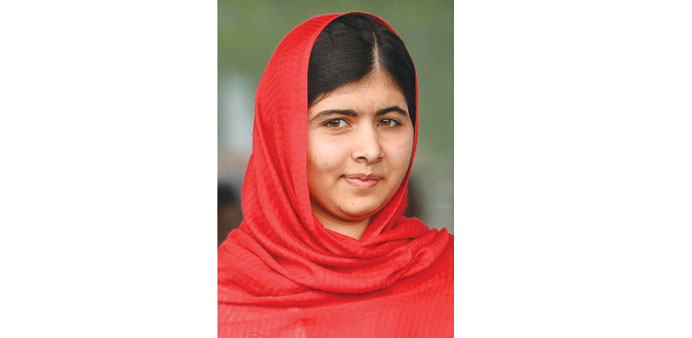This year’s Nobel prize season opens on Monday with rumours swirling the peace prize could go to Pakistani girls’ education campaigner Malala Yousafzai, Congolese doctor Denis Mukwege or rights activists from Russia or Belarus.
The first Nobel to be announced will be the medicine prize on Monday, when the jury in Stockholm reveals the winner or winners around 11:30am.
But like every year, most of the speculation is on who will take home the prestigious peace and literature prizes.
A record 259 nominations have been submitted for this year’s peace prize but the Norwegian Nobel Institute never discloses the list, leaving amateurs and experts alike to engage in a guessing game ahead of the October 11 announcement.
The head of the Peace Research Institute of Oslo, Kristian Berg Harpviken, follows the work of the peace prize committee closely and has since 2009 published his own shortlist of possible winners - though he has yet to correctly pick the laureate.
Topping his list this year is Malala, the Pakistani teen who survived a shot to the head last year by the Taliban for championing girls’ education.
Harpviken said she “not only has become a symbol of girls’ and children’s right to education and security, but also of the fight against extremism and oppression”.
But others suggest the prize would be too heavy to bear given her young age of 16. “I’m not sure it would be suitable, from an ethical point of view, to give the peace prize to a child,” Tilman Brueck, the head of Stockholm peace research institute SIPRI, told Norwegian news agency NTB.
He suggested the award could instead go to Colombia’s peace negotiators or Myanmar’s reformists.
Asle Sveen, a historian specialised in the peace prize, meanwhile, said he thought the five committee members could give the nod to Congolese gynaecologist Mukwege.
The doctor has set up a hospital and foundation to help thousands of women who have been raped in strife-torn eastern Democratic Republic of Congo by local and foreign militants, as well as by soldiers in the army.
Another Nobel prize that generates much speculation is that for literature.
Unlike the other awards, the date of the literature prize announcement is revealed only a few days in advance. But it traditionally falls on a Thursday, and could therefore be October 10.
Experts in Stockholm’s literary circles suggested Belarussian writer Svetlana Alexievich could obtain the honour, though her name was not among those listed as possible winners on online betting sites.
Ladbrokes had Japanese author Haruki Murakami as the favourite with 4-to-1 odds, followed by US novelist Joyce Carol Oates at 7-to-1, Hungary’s Peter Nadas at 8-to-1 and Korean poet Ko Un at 11-to-1.
Other names circulating including Canadian short story author Alice Munro, Algerian writer Assia Djebar and US novelist Philip Roth.
For the physics prize, to be announced on October 8, the nod is widely expected to go to the breakthrough work on the Higgs Boson that explains mass.
Yet another award
Malala Yousafzai yesterday added another award to a growing list. She was given the RAW in WAR Anna Politkovskaya Award, named after the Russian investigative journalist who was shot dead seven years ago next Monday. The 16-year-old was presented with the award in London and said she hoped she could be “as brave as (Politkovskaya) was”. As well as being a frontrunner for the Nobel, Malala has also been shortlisted for the European Parliament’s prestigious Sakharov human rights prize. RAW in WAR promotes women who have defended human rights. Last year’s winner was Marie Colvin, the journalist with British newspaper The Sunday Times, who was killed covering the Syrian conflict.

